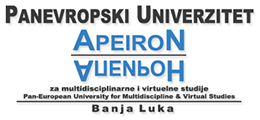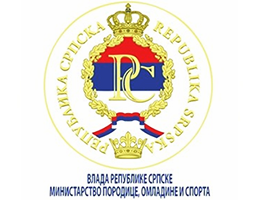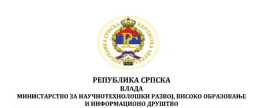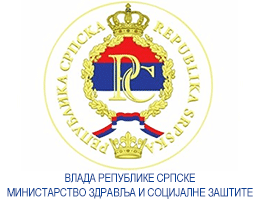Differences Between Professional and Recreational Athletes in Psychological Characteristics And Habits During the Covd-19 Pandemic
Volume 13, Issue 2 (2023)
Volume 13, Issue 2 (2023)
Differences Between Professional and Recreational Athletes in Psychological Characteristics And Habits During the Covd-19 Pandemic
Abstract:
This study was conducted with the aim of investigating diff erences between recreational and professional athletes
in perfectionism, distress, coping strategies, and changes in sports activities during the COVID-19 pandemic. Participants
in the study consisted of a sample of 389 professional and recreational athletes. The results of the conducted analysis
indicate the existence of certain diff erences between the two considered groups. On average, professional athletes score
higher on the perfectionism scale than recreational athletes (t=-2,92, p<,01). Also, professional athletes were on average
more likely to use relaxation techniques before (t=-8,30, p<,01) and during lockdown (t=-6,20, p<,01) compared to recreational
athletes. Furthermore, professional athletes estimated that on average they missed training (t=-6,52, p<,01) and
sports performances more (t=-11,30; p<,01) compared to recreational athletes. On average, professional athletes report
a signifi cantly larger reduction in training compared to recreational athletes (t=4,23, p<,01). Considering our results, we
think it would be benefi cial to focus on this topic in future studies.
Keywords:
coping with stress, changes in sports activities, perfectionism tendencies
Full Text:
References:
Bradham, J. (2000). Achievement motivation and perfectionism as predictors of athletic performance. The Science & Engineering, 61(5), 2740.
Brooks, S. K., Webster, R. K., Smith, L. E., Woodland, L., Wessely, S., Greenberg, N. i Rubin, G. J. (2020). The psychological impact of quarantine
and how to reduce it: rapid review of the evidence. The lancet, 395(10227), 912-920.
Carver, C. S. (1997). You want to measure coping but your protocol too long: Consider the brief cope. International journal of behavioral
medicine, 4(1), 92-100.
Clemente-Suárez, V. J., Fuentes-García, J. P., de la Vega Marcos, R., & Martínez Patiño, M. J. (2020). Modulators of the personal and professional
threat perception of Olympic athletes in the actual COVID-19 crisis. Frontiers in psychology, 1985.
Di Fronso, S., Costa, S., Montesano, C., Di Gruttola, F., Ciofi , E. G., Morgilli, L., ... & Bertollo, M. (2020). The eff ects of COVID-19 pandemic
on perceived stress and psychobiosocial states in Italian athletes. International Journal of Sport and Exercise Psychology, 1-13.
Facer-Childs, E. R., Hoff man, D., Tran, J. N., Drummond, S. P., & Rajaratnam, S. M. (2021). Sleep and mental health in athletes during COVID-
19 lockdown. Sleep, 44(5), zsaa261.
Faulkner, J. A., Davis, C. S., Mendias, C. L., & Brooks, S. V. (2008). The aging of elite male athletes: age-related changes in performance and
skeletal muscle structure and function. Clinical journal of sport medicine: offi cial journal of the Canadian Academy of Sport Medicine,
18(6), 501.
González-Hernández, J., López-Mora, C., Yüce, A., Nogueira-López, A., & Tovar-Gálvez, M. I. (2021). “Oh, My God! My Season Is Over!”
COVID-19 and Regulation of the Psychological Response in Spanish High-Performance Athletes. Frontiers in Psychology, 12.
Håkansson, A., Moesch, K., Jönsson, C. i Kenttä, G. (2021). Potentially prolonged psychological distress from postponed olympic and paralympic
games during COVID-19—career uncertainty in elite athletes. International journal of environmental research and public
health, 18(1), 2.
Hewitt, P. L., & Flett, G. L. (1991). Perfectionism in the self and social contexts: Conceptualization, assessment, and association with psychopathology.
Journal of Personality and Social Psychology, 60(3), 456–470.
Hopkinson, R. A., & Lock, J. (2004). Athletics, perfectionism, and disordered eating. Eating and Weight Disorders-Studies on Anorexia, Bulimia
and Obesity, 9(2), 99-106.
Hossain, M. M., Sultana, A., & Purohit, N. (2020). Mental health outcomes of quarantine and isolation for infection prevention: a systematic
umbrella review of the global evidence. Epidemiology and health, 42.
Iancheva, T., Rogaleva, L., GarcíaMas, A., & Olmedilla, A. (2020). Perfectionism, mood states, and coping strategies of sports students from
Bulgaria and Russia during the pandemic COVID-19. Journal of Applied Sports Sciences, (1), 22-38.
Ivanov, L., & Penezic, Z. (2004). Burnsova skala perfekcionizma.[Burn’s Perfectionism Scale]. Zbirka psihologijskih skala i upitnika, 2, 13-18.
[in Croatian]
Kline, R.B., 2011. Principles and practice of structural equation modeling (3 rd edn). Guilford publications.
Kurdić, Ž. (2020). Odluke Stožera civilne zaštite RH u 2020. godini i relevantni propisi u uvjetima epidemije koronavirusa. Zagreb: IUS –
INFO. Dostupno na: https://www.iusinfo.hr/aktualno/u-sredistu/41376#sije%C4%8Danj2020 [18. kolovoza 2022.] [in Croatian]
Lautenbach, F., Leisterer, S., Walter, N., Kronenberg, L., Manges, T., Leis, O., ... & Elbe, A. M. (2021). Amateur and recreational athletes’
motivation to exercise, stress, and coping during the corona crisis. Frontiers in psychology, 4032.
Lazarus, R. S., Folkman, S., & Krizmanić, M. (2004). Stres, procjena i suočavanje. Naklada Slap.
Leguizamo, F., Olmedilla, A., Núñez, A., Verdaguer, F., Gómez-Espejo, V., Ruiz-Barquín, R., & Garcia-Mas, A. (2021). Personality, coping
strategies, and mental health in high-performance athletes during confi nement derived from the COVID-19 pandemic. Frontiers in
Public Health, 924.
Lovibond, S.H. i Lovibond, P.F. (1995). Manual for the Depression Anxiety & Stress Scales. (2nd Ed.) Sydney: Psychology Foundation.
Mehri, S., Parvazi Shandi, M., & Ajilchi, B. (2017). Comparison of self-esteem, perfectionism and locus of control in athletic and non-athlete
students. Journal of Research in Educational Science, 11(38), 219-241.
Mouratidis, A., & Michou, A. (2011). Perfectionism, self-determined motivation, and coping among adolescent athletes. Psychology of sport
and exercise, 12(4), 355-367.
Oliveira, L. P. D., Vissoci, J. R. N., Nascimento Junior, J. R. A. D., Ferreira, L., Vieira, L. F., Silva, P. N. D., ... & Vieira, J. L. L. (2015). The
impact of perfectionism traits on motivation in high-performance soccer athletes. Revista Brasileira de Cineantropometria & Desempenho
Humano, 17, 601-611.
Pété, E., Leprince, C., Lienhart, N., & Doron, J. (2022) Dealing with the impact of the COVID-19 outbreak: Are some athletes’ coping profi les
more adaptive than others?, European Journal of Sport Science, 22(2), 237-247
Samuel, R. D., Tenenbaum, G., & Galily, Y. (2020). The 2020 coronavirus pandemic as a change-event in sport performers’ careers: conceptual
and applied practice considerations. Frontiers in Psychology, 2522.
Schinke, R., Papaioannou, A., Henriksen, K., Si, G., Zhang, L., & Haberl, P. (2020). Sport psychology services to high performance athletes
during COVID-19. International journal of sport and exercise psychology, 18(3), 269-272.
Schmidt A.F., Finan C. (2018) Linear regression and the normality assumption. J Clin Epidemiol.; 98, 146-151.
Schwarz, H. C., Gairrett, R. L., Aruguete, M. S., & Gold, E. S. (2005). Eating attitudes, body dissatisfaction, and perfectionism in female
college athletes. North American Journal of Psychology, 7(3).
Şenışık, S., Denerel, N., Köyağasıoğlu, O., & Tunç, S. (2021). The eff ect of isolation on athletes’ mental health during the COVID-19 pandemic.
The Physician and sportsmedicine, 49(2), 187-193.
Shimits, A., Reid, W., Petrie, T., Trujillo, N., & Pryor, T. (2022). Eating Disorder Behaviors and Psychological Characteristics: A Comparison
Between Athletes and Nonathletes in a Partial Hospitalization Program. Sport Social Work Journal, 1(1), 104-114.
Stambulova, N. B., Ryba, T. V., & Henriksen, K. (2021). Career development and transitions of athletes: The international society of sport
psychology position stand revisited. International Journal of Sport and Exercise Psychology, 19(4), 524-550.
Stambulova, N. B., Schinke, R. J., Lavallee, D., & Wylleman, P. (2020). The COVID-19 pandemic and Olympic/Paralympic athletes’ developmental
challenges and possibilities in times of a global crisis-transition. International Journal of Sport and Exercise Psychology, 1-10.
Stirling, A. E., & Kerr, G. A. (2006). Perfectionism and mood states among recreational and elite athletes. Athletic Insight, 8(4), 13-27.
Szczypińska, M., Samełko, A., & Guszkowska, M. (2021). Strategies for coping with stress in athletes during the COVID-19 pandemic and
their predictors. Frontiers in Psychology, 498.
Vidović, A. (2021). Otpornost na stres uzrokovan pandemijom COVID-19 kod mladih: razlike između sportaša i nesportaša, Diplomski rad.
[in Croatian]
Vincent, P & Yahaya, M. (2012). Anxiety and Imagery of Green Space among Athletes. British Journal of Arts and Social Sciences, 4(1), 67-72.
Weinberg, R.S. & Gould, D., 2011. Foundations of Sport and Exercise Psychology. Champaign, IL: Human Kinetics.
WHO. Mental health and psychosocial considerations during the COVID-19 outbreak. World Health Organization. https://www.who.int/docs/
default-source/ coronaviruse/mental-healthconsiderations.pdf. Retrieved 12 April 2020.
Zanon, C., Brenner, R. E., Baptista, M. N., Vogel, D. L., Rubin, M., Al-Darmaki, F. R., Gonçalves, M., Heath, P. J., Liao, H.Y., Mackenzie,
C.S., Topkaya, N., Wade, N.G. i Zlati, A. (2021). Examining the dimensionality, reliability, and invariance of the Depression, Anxiety,
and Stress Scale–21 (DASS-21) across eight countries. Assessment, 28(6), 1531-1544.






